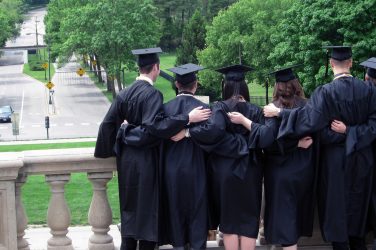Joël Brierre, the founder and CEO of the psychedelic wellness company Kaivalya Kollectiv has been a pioneer in the modern entheogenic movement, especially in the realm of 5-MeO-DMT. Joël works specifically in the retreat setting and with over a decade of retreat experience he continues to shift the landscape of psychedelic use. E&M author Gabriele Poteliunaite met him for an interview.
Gabriele: You have opened the world’s first retreat center focused on a safe and effective use of 5-MeO-DMT (O-methyl-bufotenin) in a retreat setting. How did you find yourself in the field of psychedelics and what was your journey like?
Joël Brierre: I first ventured into the psychedelic realm in the late 90s and have been splashing around these waters since then. I began teaching yoga and meditation around 2007 and started holding retreats a few years after. My aim was always to open a retreat center, so I took the time and developed the necessary tools from hospitality to the world of corporate business. Raising capital for this type of project was difficult to say the least, most of the Venture Capital funds who are already in the space are only looking for the type of ROIs that come with Pharma, biotech, or companies that are prepping to do an IPO, while that’s just not us right now. We’re concerned with the way 5-MeO-DMT rolls out to the world, there are a lot of things that can go wrong with improper use.
Gabriele: Tell us more about 5-MeO-DMT, what is this, and where can we find it?
Joël Brierre: 5-MeO-DMT is an alkaloid that is found throughout nature in a wide variety of plant species, but most popularly, it is found in the secretion of the Bufo Alvarius toad from the Sonoran desert. Then there is the pure molecule which is synthetically made in laboratories. Like its close relatives DMT and bufotenin, it has been used as an entheogen.
*Entheogens are psychoactive substances that induce alterations in perception, mood, consciousness, cognition, or behavior for the purposes of engendering spiritual development or otherwise in sacred contexts.
Gabriele: What are the effects of 5-MeO-DMT, and have there been a lot of clinical trials run on this particular drug? Where does it position itself with the more known ones: LSD, psilocybin?
Joël Brierre: There have been a few trials run with this molecule, all showing promising results in the realms of neuro-plasticity, and potential to shift behavioral patterning. As far as the other classic molecules go, 5-MeO-DMT sits at the top, as the “crown jewel” of the entheogenic kingdom. It is far more of a powerful experience than the others.
Gabriele: Psychedelic therapy has been viewed for a long time as a little too close to shamanism for comfort. The description of your retreat also sounds somewhat spiritual, helping people to, for example, find their higher calling. Tell me more about your retreat: who are the professionals in charge, what kind of people do you usually host? What journey do they take?
Joël Brierre: Our protocol is a blend of the ancient teachings and modern day therapy. Our practitioners range from spiritual teachers to western psychotherapists, allowing us to meet participants where they are at in their unique journey. Our retreats involve meditation, breathwork, introspective journaling assignments, shadow work, and many other integrative modalities. We feel that it is essential to include the spiritual aspect in this work, the peak experience with 5-MeO-DMT is unmistakably mystical, so much so that denying this to the participants could even cause confusion or destabilization in their integration process.
Gabriele: It has been described in the literature that psychedelic experience, in some sense, forbids a premature closing of our accounts with reality by temporarily disabling our ego. What does it mean to temporarily disable your ego? How do the feelings manifest itself?
Joël Brierre: If the ego is our sense of individual self, then upon its dissolving away, our awareness is left to experience itself as pure, infinite, unadulterated consciousness. In this state there is no sense of individual self nor even a subject/object relationship with one’s environment. This is the true and classic mystical experience.
Gabriele: Can we say that the loss of self leads to a gain in meaning? And how can this be explained biologically?
Joël Brierre: The temporary loss of self allows us to gain meaning in a way that a drop of water would gain meaning upon rejoining the entire ocean and remembering its true nature as this ocean. When the parts of our brain responsible for giving us an experience of individual self, known as the default mode network, shuts down, then the whirlwind of chaos that is self cognition ceases.

Gabriele: What has been a turning point in your life that has completely shifted your view on psychedelics and made you convinced this is the next big thing in the realm of neuroscience and mental illness treatment?
Joël Brierre: Being in this space for over 20 years, I’ve always been sure that these materials could change the world, but when Michael Pollan started talking about psychedelics and your average “straight laced” type of person started coming to check out integration circles about 5-6 years back, we knew this was getting huge.
Gabriele: Do you agree with the statement: “the feeling of co-creatureliness with all things alive should enter our consciousness more fully and counterbalance the materialistic and nonsensical technological developments in order to enable us to return to the roses, to the flowers, to nature, where we belong”-
Joël Brierre: Not entirely, I don’t feel that humans need to regress to older and more primitive ways of living, I feel that this unitive experience can bring us into the right relationship with ourselves and our environments, so we can find balance with nature and with technology. I feel that in the right setting, this experience can ease the suffering that seems to be innate within the human experience, thus allowing us access to shifting and releasing patterns built up over time from trauma and other life events in general. When we address what’s keeping us suffering and feelings separate, we find ourselves being able to enjoy this life for what it is, and not for what it was or what we fear/hope it may be.
Gabriele: Psychedelic research is gaining its momentum. How do you see it evolve in the coming years?
Joël Brierre: I’m looking forward to seeing how it all evolves, it will be beautiful to see the different types of modalities in therapy that form from this, along with advances in biotech, and so many other possibilities. I think this is just the beginning, we just have to remember that we’re not going to find a magic pill in psychedelics, the care of a good practitioner along with careful preparation and aftercare are going to be necessary for this to have the effects we all hope it will.
Gabriele: Thank you very much for the interview!
* Note by the author: The user’s mindset, surroundings, stress level, expectations, thoughts and mood at the time the drug is taken, strongly influence the effects of the drug. Increasing amount of research is suggesting the huge positive potential taken in an appropriate setting is significantly stronger than the risk of “bad trips” and long-term harm that may afflict some. It’s important to distinguish what can happen when these drugs are used in uncontrolled situations, without attention to set (the mental state a person brings to the experience, like thoughts, mood and expectations) and setting (the physical and social environment), from what happens under clinical conditions, after careful screening and supervision.
Cover photo: by Jr Korpa, Unsplash







